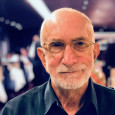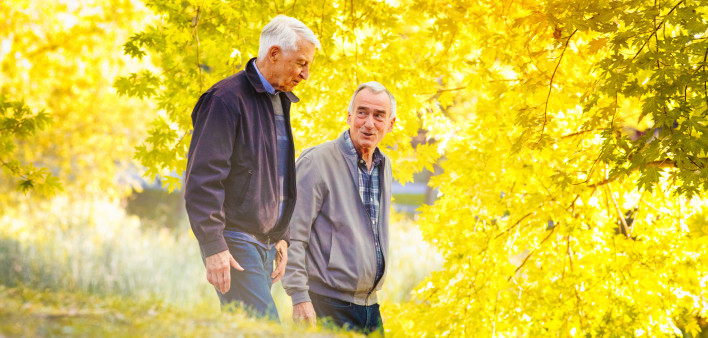Much has been written about aging with HIV in the last few years. It’s well-meaning stuff, but as a person who is not so much aging as aged—the distinction is important—there is little of it I can relate to. The lived experience, or at least my lived experience, seems missing from the narrative. Is my privilege showing? Maybe I just don’t typify people with HIV who are on in years, really on in years? Or maybe the popular narrative isn’t getting it right—maybe it isn’t driven by people with that lived experience?
Here is what I mean. It’s challenging for a white-skinned person to write authentically about the experience of living as a person of colour. By the same token, it’s hard for younger people to think authentically about the issues that descend like flies on a person of advanced years. Researchers seem to get it wrong all the time too, as they tend to look at everything through an HIV lens when in fact those of us with HIV mostly don’t do that.
Thus aging with HIV is portrayed as inevitably encountering a threatening array of AIDS-related illnesses that somehow swoop down upon us years before our time. You might be fooled into thinking, for example, that if you are living with HIV you are at increased risk of lung cancer. The reality is that, for complex reasons, smoking is more prevalent in the HIV community. The incidence of lung cancer has nothing to do with HIV itself.
Sometimes that point is made but buried. Ben Ryan’s POZ article identifying “a roster of aging-related health conditions that are associated with HIV” seems like bad news for all. But there is this from the researchers involved: “We’re unable to say for certain which (conditions) are caused or exacerbated by HIV and its treatment, and which are related to lifestyle.”
Simply put, if you don’t smoke, don’t do drugs and do live relatively healthy, little of the findings in this sort of article apply to you. I recognize, again, that good health and privilege are intertwined. I wish that point were made more often. In any event, there is a range of how aging is experienced and I worry how well we acknowledge that.
The popular narrative about HIV and aging is questionable in areas beyond comorbidities. The fact that people with HIV age earlier than their negative compatriots is widely accepted, but is it true? Not everybody thinks so. In any event, our lifestyle and social determinants of health largely determine how we age and when we die. I’d argue that those factors are now more relevant than HIV itself or the meds we take. (Note that I’ve chosen not to elaborate on the side effects of HIV meds which may complicate life for the aged, sometimes extensively. Not all with experience them,.though. I do. Their omission here, for better or worse, is in order to create a level playing field of experience where more can perhaps relate. Look to excellent narratives about long term survivors coping with side effects elsewhere on this site.)
In any event, we seem to have elevated HIV to be something that governs every inch of our lives. It may do for some, but it doesn’t for me, even less so as I grow old.
Experiences vary; I speak for nobody but myself, but being old while living with HIV isn’t what I thought it would be. In many respects, from what I witness, my life now is much like the lives of HIV-negative seniors of my background experience life. Many of us with HIV aren’t at the HIV clinic every day; in fact, I go there only once a year. We are instead confronted with mobility issues, hearing issues, vision issues and more. We ache. We are more than conscious too, I think, of being perched on the edge of an abyss, with mortality issues increasingly on our minds. (When did you last read about dying well with HIV or go to a workshop about it, or read an article about it in the context of present day realities?)
More research is clearly needed about what it’s really like to be old with HIV. As it is, we don’t even have a handle on how many of us there are.
It’s not just me saying this. When I last wrote here about HIV and aging in July 2018, I quoted Canada’s national HIV organization Realize, whose brief includes aging issues. I’ll do so again: “The official indifference to better understanding the needs of a group which constitutes approximately half of those living with HIV, and growing annually, is staggering.” Nothing has changed. The group of older people with HIV has become bigger and, I’d argue, one of the most marginalized in my country. That we don’t even know the number of people with HIV over, say 60, because we don’t keep data, is shocking but true.
(The old are included in Canada in an umbrella group that is labelled “over 50.” No matter that the young are tracked in five year increments, so that we know their number diagnosed in, say, the 15 to 19 range. The message? If you are over 50, we aren’t interested in your progression to old age.)
The point is that old people with HIV find themselves ignored or misunderstood. Out of sight, out of mind. The old are seldom service users, seldom included in focus groups, seldom consulted, seldom on boards. Why? They are at home, retired, don’t get out much, in care or perhaps are just unwell. There just aren’t enough attempts made to compensate for all that. It’s far easier to consult the aging rather than the aged, so that’s what we tend to do.
“Most HIV research studies arbitrarily exclude anyone over 65—a relic from the old days when nobody was expected to live that long—so there’s a lot of catching up to do. We don’t know what happens as people age with HIV. It’s a huge unanswered question,” said Jeff Taylor in a recent POZ cover story.
I can’t help thinking that will change. A “silver tsunami” of people living with HIV approaching the end of their lives will surely end the indifference. Call it a rise in gray power if you like. We have much to contribute to understanding the living-with-HIV life-cycle. In the meantime our stories are important, yours and mine. Let’s keep telling them.








41 Comments
41 Comments